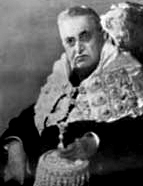

Publications from this period include “A Universidade Lisboa-Coimbra. Capítulo de uma Obra Allemã Traduzido e anotado” [The University of Lisbon-Coimbra. Chapter from a German Work, Translated and Annotated] and “Nota sobre o ensino do hebreu em Portugal na actualidade” [Note on the Teaching of Hebrew in Portugal Today] (Congresso Pedagogico Hispano-Portuguez-Americano. Portuguese Section, 1892). In his reports on the work he had carried out or his reflections on what he considered important, JMR often emphasised the importance of history. We see him lamenting, in contrast to “more advanced countries”, the absence of Portuguese scholars in the Vatican archives, open for consultation since 1880 (“Note on the need for research concerning the history of Portugal to be carried out in the Vatican Archives”, 1892). In addition to a patriotism perhaps wounded and exacerbated by the crisis of 1890 (“And what have we Portuguese done? Nothing – sad to say” – p. 9), concrete arguments support his discourse: “Among the publications subsidised by the Portuguese government, there are mainly two that will remain incomplete if no research is carried out in the Vatican archives. I refer to Portugaliae Monumenta historica and Corpo diplomatico portuguez.” (p. 10). Perhaps for this reason, and perhaps because he did not allow such care to be forgotten, JMR was chosen in 1914 to explore the famous archives during the 1915-1916 academic year, looking for documentation involving Portugal’s relations with the Holy See. The Great War, however, ruined this project.
At the turn of the 20th century, JMR was more optimistic when it came to education. In “L’Instruction Secondaire en [sic] Portugal” (1900), backed by French and German authorities, he was proud to follow “les principes de la pédagogie moderne” (p. 16), and emphasised, in particular, the programme and methodology of history: “L’enseignement de l’histoire doit être donné de façon à développer chez les élèves l’intelligence, l’imagination et la volonté morale, le sentiment artistique, le sens historique et l’amour de la patrie et de l’humanité.” (p. 14). In 1903, in a “propaganda” conference given at the Centro Regenerador Liberal (founded by João Franco), he insisted on the idea that “the material prosperity and political preponderance of a people depend essentially on their instruction and education.” “Without popular instruction and education, there can be no public opinion, and without public opinion, liberal institutions are fatally condemned to remain mere fiction.” He warned, advocating as decisive “an intellectually complete, easily accessible and morally vigorous secondary education system.” (“National education and instruction. […]”. Diario Illustrado. Regenerador-Liberal , 21-6-1903, f. 1).
This work is financed by national funds through FCT - Foundation for Science and Technology, I.P, in the scope of the projects UIDB/04311/2020 and UIDP/04311/2020.
